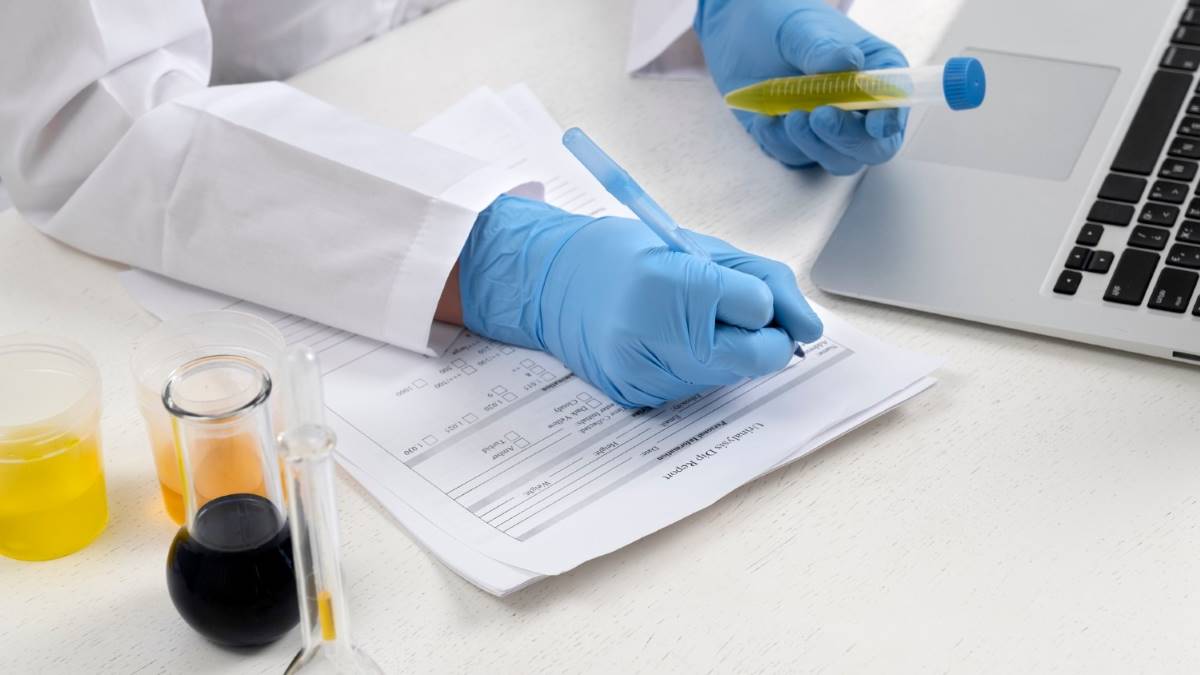Urinalysis is a common diagnostic tool used to detect potential infections, kidney problems, and other health conditions. One important marker in these tests is leukocyte esterase, an enzyme found in white blood cells (leukocytes). When leukocyte esterase is present in urine, it can indicate an immune response to infection or inflammation in the urinary tract. But what does an abnormal result mean, and when should you be concerned?
What Is Leukocyte Esterase and Why Is It Tested?
Leukocyte esterase is an enzyme released by white blood cells as they respond to infections or inflammation. A urine test for leukocyte esterase helps detect the presence of white blood cells in the urine (pyuria), which often signals an underlying issue.
Normal vs. Abnormal Results
- Negative (Normal): No significant number of white blood cells in the urine, meaning no infection or inflammation.
- Positive (Abnormal): Indicates the presence of white blood cells, suggesting a potential infection or inflammatory condition.
What Can Cause Elevated Leukocyte Esterase in Urine?
Several conditions can lead to a positive leukocyte esterase test, ranging from mild infections to more serious health concerns.
1. Urinary Tract Infections (UTIs)
The most common cause of leukocyte esterase in urine is a urinary tract infection (UTI). Bacteria entering the urinary system trigger an immune response, leading to white blood cell accumulation in the urine. Symptoms may include:
- Burning sensation during urination
- Frequent urge to urinate
- Cloudy or foul-smelling urine
- Lower abdominal or back pain
2. Kidney Infections (Pyelonephritis)
If a UTI spreads to the kidneys, it can cause pyelonephritis, a more severe infection that may result in fever, chills, nausea, and flank pain. Kidney infections require prompt medical attention to prevent complications.
3. Bladder Inflammation (Cystitis)
Inflammation of the bladder, whether due to infection, irritation, or interstitial cystitis, can also lead to the presence of leukocyte esterase. Non-infectious cystitis may be triggered by:
- Certain medications
- Chemical irritants (e.g., perfumed soaps or hygiene products)
- Radiation therapy
4. Sexually Transmitted Infections (STIs)
Certain sexually transmitted infections, such as chlamydia and gonorrhea, can cause an increase in white blood cells in the urine. If leukocyte esterase is present but bacteria are not detected in a standard urine culture, further STI testing may be required.
5. Kidney Stones or Urinary Tract Blockages
Kidney stones or blockages in the urinary system can cause irritation and inflammation, leading to an increase in white blood cells in the urine. This may be accompanied by severe pain, blood in the urine, or difficulty urinating.
6. Autoimmune Diseases
In some cases, autoimmune conditions like lupus or interstitial nephritis can lead to an abnormal leukocyte esterase test due to ongoing immune system activity.
When Should You Be Concerned?
A positive leukocyte esterase test does not always mean a serious issue, but you should consult a doctor if you experience:
- Persistent urinary symptoms (pain, burning, frequent urination)
- Fever, chills, or back pain (possible kidney infection)
- Blood in the urine
- Symptoms that do not improve with initial treatment
What Happens Next? Further Testing and Treatment
If leukocyte esterase is detected, your doctor may recommend additional tests to confirm the cause:
- Urine culture – Determines if bacteria are present and identifies the type of infection.
- Microscopic urinalysis – Checks for white blood cells, red blood cells, and other abnormalities.
- Imaging tests (ultrasound, CT scan) – If kidney stones or structural issues are suspected.
Treatment Options
- For UTIs: Antibiotics are typically prescribed, along with increased fluid intake.
- For kidney infections: Stronger antibiotics or hospitalization may be required in severe cases.
- For non-infectious causes: Addressing the underlying condition (e.g., avoiding bladder irritants, managing autoimmune diseases).
For a more detailed guide on what leukocyte esterase in urine indicates and when to seek medical attention, visit ElitMagazin.hu.
While a positive leukocyte esterase test is often linked to common infections like UTIs, persistent abnormalities should be evaluated to rule out more serious conditions and ensure proper treatment.

